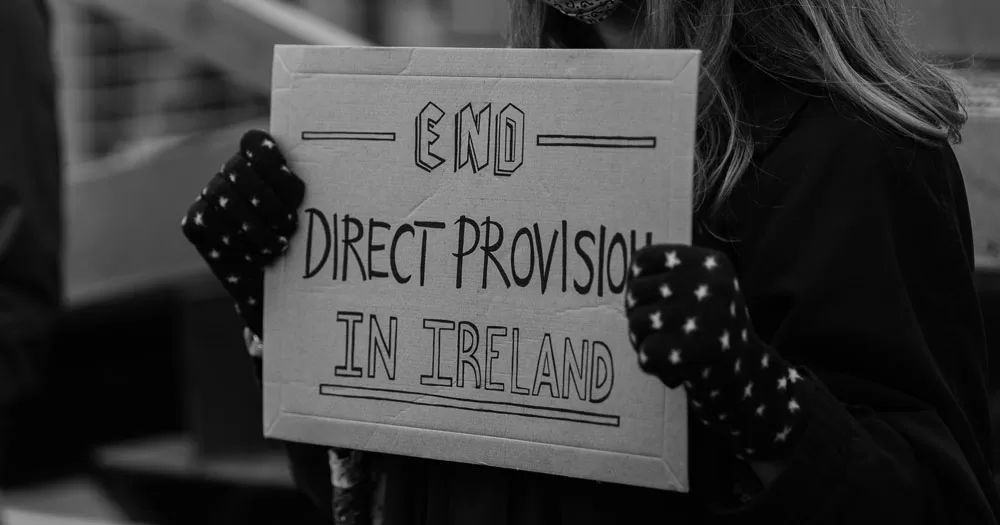The Ombudsman for Children, Dr Niall Muldoon, has raised grave concerns over the welfare of children in Direct Provision.
In a damning report published today, October 19, the Ombudsman for Children’s Office (OCO) identified that the use of hotels and BnBs as emergency accommodation and a lack of vulnerability assessments are putting the welfare of children seeking international protection in Ireland at risk.
For the first time in the office’s 20-year history, the Ombudsman has used his power to deliver a ‘special’ report as he believes the government has failed to adequately respond to findings made in a previous investigation published in 2021.
Since then, he suggests “that the crisis-driven response currently being executed by Government has made the situation worse for children living in State-provided accommodation.”
Furthermore, according to the OCO Special Report on Safety and Welfare of Children in Direct Provision report, he also feels “progress on the White Paper on Direct Provision has stalled or regressed.”
The White Paper, published in 2021, saw the Government promise to phase out Direct Provision, which allows privately owned centres to operate a ‘for-profit’ model, replacing them with a State-owned not-for-profit system by 2024.
However, in January of this year, the Government confirmed that they would not be able to achieve this deadline. To date, no revised target has been published.
According to the new Ombudsman for Children’s Office report, which also incorporated contributions from International Protection Accommodation Services (IPAS) and Tusla, “Recent figures show that the State is spending more than €42.1 million each month on rental, management and the maintenance of accommodation for asylum seekers.”
As of October 15, 2023, as many as 24,528 people live in Direct Provision centres, including 5,276 children. The majority of these people (15,890 adults and 2,973 children) are housed in hotels and BnBs as emergency accommodation. People are forced to leave their home countries due to a number of reasons, one of which is fear of persecution under anti-LGBTQ+ laws.
The report states, “As we know the majority of children are being accommodated in non-permanent centres such as hotels and B&Bs, meaning that there is inadequate monitoring of complaints, child protection and welfare concerns, and any other adverse incidents.”
It also said that the Ombudsman for Children’s Office is concerned about IPAS “regard to the vulnerability of children within the international protection process in the planning and provision of their accommodation needs”.
It notes in the report that when the OCO published its 2021 investigation, the Department of Children made a commitment that a vulnerability assessment would be carried out within 30 days of a child applying for international protection. However, current figures show that only 10% of children seeking international protection have received a vulnerability assessment.
The Journal.ie quotes Dr Muldoon as saying, “How we treat children coming to this country will be a defining issue of our generation, and as things stand, history will not judge us well.”
Acknowledging the impact of the crisis in Ukraine, he continued, “We all know that the landscape has changed significantly since [the previous OCO investigation] with the outbreak of war in Ukraine. However, inadequate standards in 2021 are still inadequate standards in 2023.
“We cannot allow what everyone agreed was not good enough to become acceptable simply because it is better than tents, or better than nothing. We owe these children much more respect than that and as a nation we need to guard against lowering standards during this crisis.”
He emphasised that the purpose of the OCO’s special report is “not to shame the Government, but rather it is to spur them on to not lose sight of the commitments they themselves agreed in 2021″.
He concluded, “I hope that this report, alongside strong advice from the Advisory Committee on the White Paper and others, will encourage the Government to take action and to consider a medium and long-term plan that will work.”
© 2023 GCN (Gay Community News). All rights reserved.
Support GCN
GCN is a free, vital resource for Ireland’s LGBTQ+ community since 1988.
GCN is a trading name of National LGBT Federation CLG, a registered charity - Charity Number: 20034580.
GCN relies on the generous support of the community and allies to sustain the crucial work that we do. Producing GCN is costly, and, in an industry which has been hugely impacted by rising costs, we need your support to help sustain and grow this vital resource.
Supporting GCN for as little as €1.99 per month will help us continue our work as Ireland’s free, independent LGBTQ+ media.

comments. Please sign in to comment.